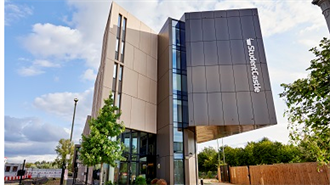Prospects for the London office market are positive because new investors are coming to the fore, while the growth of new sectors is compensating for the possible decline of financial services after Brexit, delegates heard at the London Real Estate Forum (LREF), which was held this week.
‘Investors are still coming to London, but they are coming from different parts of the world and for different reasons,’ said Stephen Down, head of the London investment team at Savills. ‘So far this year 85% of turnover has been done by foreign investors. The only absentees are local funds and REITs. London is receiving more money than New York and twice the amount of capital that is flowing into Paris.’
Savills’ figures demonstrate the variety of investors targeting London: since the EU referendum a year ago, £5.5 bn (€6.2 bn) has come from Asia, £3 bn from Europe, with the large German funds being particularly active; £2 bn from the Middle East and £1 bn from the US.
The weakening of the pound since the referendum is only part of the explanation, said Down: ‘Currency is just one factor. Foreign investors believe there is a very long-term story here.’ Chinese companies like CC Land, which recently bought the Leadenhall Building in the City for a record price of £1.15 bn, are driven by the need to diversify and they choose places they believe have a future.
Investors do not want a quick return, they want long-term secure income and they are shifting their attention to core assets. Value-add, which represented 30% of buying activity in 2014, has now fallen to 10%.
Investors looking for long-term income
‘Not much is being sold at the risky end,’ said Toby Courtauld, chief executive of Great Portland Estates. ‘But the market is still rammed full of overseas buyers looking for solid long-term investments, which is why we have been big net sellers. Investors want to buy, and they still prefer London to Paris, where yields are lower anyway.’
The core office market – which now includes up-and-coming areas which used to be fringe like Old Street and Battersea – is still attractive due to a combination of strong occupier demand and very limited supply. ‘This is why I am bullish on London, even if pricing is not particularly attractive across the board,’ said James Lass, manager of the Schroder UK Real Estate Fund.
‘The supply side has been well regulated in the commercial space, which is a positive,’ said Courtauld. ‘Another positive for London is that any financial job losses have been more than compensated for by technology and creative jobs. London has done well to change and adapt.’
The rise in tech and creative jobs is also leading to a rethink of the office space, with more attention paid to improvements in atmosphere, layout, air quality, temperature, well-being of employees and a focus on bringing nature into the buildings with winter gardens and indoor green spaces. The changes are being driven by occupiers, who demand a better environment to work in and a rewarding experience.
Google’s offices in King’s Cross and Apple’s headquarters in Battersea Power Station will be the places to watch, said Digby Flower, chairman of Cushman & Wakefield UK & Ireland: ‘They will be representations of the brand, with a complex and holistic view that takes into account not just their offices but the area around them, including residential and retail.’



































